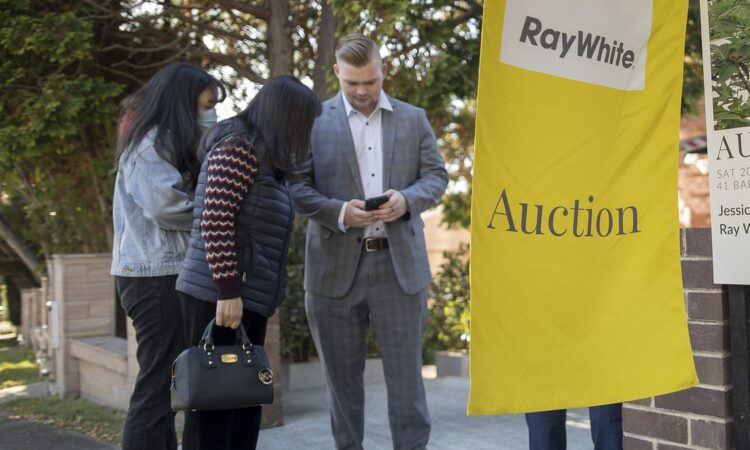Radical solution to help millions of struggling Aussies pay off their mortgage after aggressive interest rate rises

By Stephen Johnson, Economics Reporter For Daily Mail Australia
00:48 27 Nov 2023, updated 06:11 27 Nov 2023
A Liberal senator is calling for Australians to be able to put their superannuation into an offset account so they can handle rising mortgage rates.
The Reserve Bank’s 13 interest rates rises in 18 months have caused monthly mortgage repayments to surge by 69 per cent.
With variable mortgage rates now approaching seven per cent, Liberal senator Andrew Bragg has suggested allowing borrowers to divert money from their superannuation into a bank offset account.
‘The idea of Australians using their super to offset mortgages is well worth exploring,’ he said.
‘Allowing Australians to use their super to offset their mortgages will have an immediate impact on easing mortgage stress.’
Sydney real estate is so expensive that someone buying a median-priced house, worth $1.397million, would need to earn more than $186,000 to qualify for a $1.117million loan with a 20 per cent deposit.
Under Senator Bragg’s proposal, a high-income individual borrower or a dual-income couple would be able to divert an average $171,000 balance in super savings to their offset account.
Banks charge lower interest if a variable rate borrower has more money in the offset account.
The Reserve Bank of Australia this month raised interest rates by another quarter of a percentage point to a 12-year high of 4.35 per cent.
KPMG chief economist Dr Brendan Rynne said Senator Bragg’s plan would in fact lead to more interest rate rises, because borrowers would simply have more money to spend now rather than having to wait until they turned 60.
‘All you’re going to see is a stimulatory effect and a rise in aggregate demand – that rise in aggregate demand is going to probably maintain inflation at higher than otherwise levels,’ he told Daily Mail Australia.
‘Then you’ll see the Reserve Bank necessarily need to continue to strengthen and tighten monetary policy to offset that higher domestic demand.’
Superannuation returns for balanced funds have delivered average, annual returns of 6.5 per cent during the past decade, SuperRatings data showed.
The Commonwealth Bank is now charging 6.79 per cent interest for variable rate borrowers with a 20 per cent deposit.
By putting this retirement money into an offset account, to reduce interest payments, an Australian borrower would be forgoing potential super returns later.
‘We know that superannuation earns, over the long run, a return greater than six per cent,’ Dr Rynne said.
‘What you’ll find is that home owners trade off the longer-term returns by putting it into the offsets account.’
The Super Members Council of Australia, chaired by former Labor cabinet minister Nicola Roxon, slammed Senator Bragg’s proposal.
The group’s executive general manager of policy Mel Birks said ‘workers shouldn’t be called upon to use their superannuation to fix all of society’s problems or the issues of the day.’
‘Superannuation isn’t a magic wand – its sole purpose is to provide income for a dignified retirement for Australia’s workers, giving them financial freedom,’ she said.
‘Policies that open up super for other purposes dangerously undermines its ability to provide millions of Australians the dignified retirement they deserve.’
The Coalition in 2017 allowed Australians to withdraw $15,000 a year from their super, to buy their first home, provided they had made voluntary contributions.
The First Home Super Saver Scheme still allows $50,000 in total to be withdrawn to fund a mortgage deposit.
Former prime minister Scott Morrison’s government in 2020 also allowed Australians financially affected by Covid lockdowns to withdraw $20,000 in super, in two $10,000 installments.
But outside of a financial emergency, super has only be allowed for retirement since the compulsory employer contribution scheme debuted in 1992 under Labor.
Compulsory employer super contributions rose to 11 per cent on July 1 and are rising by half a percentage point increments annually until they reach 12 per cent in 2025.
Senator Bragg was previously a policy manager for the Financial Services Council, the lobby group for retail super funds.
Australia’s average super balance stood at $170,191 in 2020-21, Australian Taxation Office data showed.
The Reserve Bank this month indicated ‘further tightening’ may be required to tackle inflation, with the 5.4 per cent annual level for September well above its 2 to 3 per cent target.






